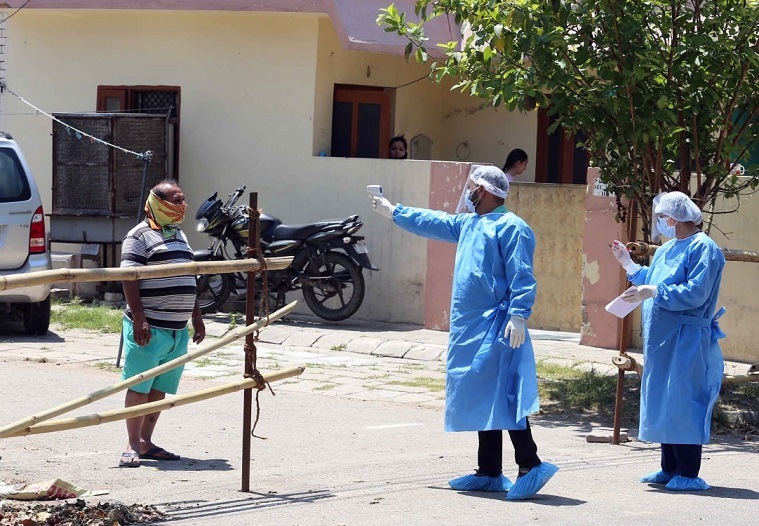 Health department workers sanitise a house in Chandigarh on Tuesday. (Express photo: Kamleshwar Singh)
Health department workers sanitise a house in Chandigarh on Tuesday. (Express photo: Kamleshwar Singh)
In an incident that highlights the need to sensitise the police about differently abled people, especially during the lockdown, a man with Asperger’s Syndrome was roughed up by a Chandigarh policeman after he was spotted taking a walk two days ago.
The man broke down at the police station, and could only be calmed down after his doctor spent two hours at the police station.
Asperger’s Syndrome is a developmental disorder affecting the ability to socialise and communicate effectively. People with this condition may be socially awkward and have an all-absorbing interest in specific topics. Actor Shah Rukh Khan played the role of a man with this condition in the movie ‘My Name is Khan’.
The young man (name withheld) is training to be a laboratory technician and lives in a small two-room flat. According to his doctor Dr Simmi Warraich, he needs to step out of his cramped house due to his special needs.
“Usually, the sector policemen recognise this 26-year-old with Asperger’s. But there was a new policeman in the locality. He saw him out of his house without a mask, called him and spoke to him angrily. Then he slapped him. This young man already has a mistrust of the police. And due to his condition, he argued with the policemen forcefully for hitting him. He has been agitated for two days now,” said Dr Warraich.
The psychiatrist said she does not blame the policeman, because someone not used to handling people with a condition like Asperger’s may not realise why he or she is agitated. “However, this incident brings to light the need to sensitise the police towards such individuals, who will require extra help to cope with the lockdown’s stringent requirements,” Dr Warraich said.
The doctor said she spent two hours calming down the youth in the police station after his parents called her. “He has a Labrador who really helps him. He takes him out for a walk,” she said.
“He is an intelligent young man. He gets upset with inconsistencies and wrongs. For example, some of his professors gave him poor marks in practicals as they saw him as confrontational, whereas he was just being truthful in asking about things he thought were wrong. In his theory exam, he did very well, and the professors realised their mistake. But his belief that they were treating him unfairly was reinforced. With support, he has almost graduated, but this incident has been dampening,” said Dr Warraich.
The psychiatrist said that lockdown days are tough times for people with disabilities, who find it suffocating to be home.
“Many like him get ill-treated by the police. Not that the police is unkind, but lack of knowledge makes them see the behaviour of such persons as impudence, when it is not,” says Dr Warraich.